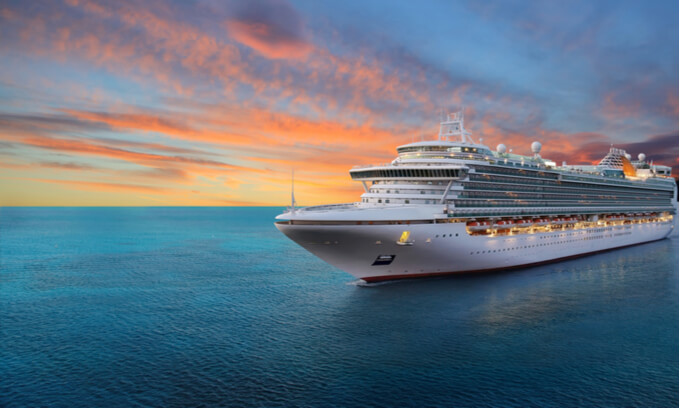What type of travel insurance do I need for a cruise?
The options providers may offer include travel insurance policies that are:
- specialist, cruise-only policies
- general policies that automatically include cruising
- general policies that offer add-on insurance for cruises for an extra fee.
What type of travel insurance policy you need to cover your cruise depends on your needs, such as:
- the length of the cruise
- where you are cruising to
- what activities you will do on the cruise, both on and off the ship
- who is travelling with you
- what you would like to cover and your budget
- if you are travelling elsewhere before you embark or after disembarking.
Keep in mind if you are planning an overseas holiday with a cruise, in particular, that some countries require international travel insurance (including medical cover) as a condition of entry.
What does cruise travel insurance cover?
Depending on the level of cover you choose, and the provider’s policies, cruise travel insurance could help to cover claims for things such as:
- overseas medical and hospital
- luggage and personal effects, up to a certain limit
- death and disability, and funeral expenses
- legal liability
- hijack and kidnap.
The provider may also offer add-on insurance for:
- expensive items, like camera equipment, golf clubs and mobile phones
- ski and winter sports.
What does cruise travel insurance not cover?
When an insurance policy doesn’t cover something, it’s called an ‘exclusion’. A review of a number of travel insurance policies reveals there are typically some common exclusions, which could include:
- Not complying with what your ticket says.
- Reckless/irresponsible behaviour: If you were under the influence of alcohol or drugs, or if you didn’t exercise common sense, such as leaving items unattended.
- Dangerous activities: These are things that are not your ‘usual’ cruise activities, such as bungee jumping, skiing or skydiving, whether or not they happen as part of on-board activities or during shore leave with adventure tourism. (You may need a separate or add-on policy to cover these.)
- Deliberately injuring yourself.
- Civil unrest or war, terrorist acts.
- Government actions: This could include having something confiscated at customs, or any time a government action results in something being damaged, detailed or destroyed.
- Certain pre-existing medical conditions.
There could be extra exclusions in a policy relating to cruises. With this in mind, it’s a good idea to check if the insurance policy covers you for things such as:
- Cancellation or postponement: Check under what conditions you can claim, and how much of the travel cost the policy would cover if the trip were to be cancelled, and what associated costs would be covered due to postponement. For example, whether the policy covers any increase in flight costs if the cruise portion of your trip was postponed due to COVID-19 complications.
- Disruption due to COVID-19: It’s also a good idea to find out what would happen if you, or one of your travelling companions, were to contract COVID-19 while travelling, and what medical, transport and cancellation expenses are covered.
- Quarantine requirements due to COVID-19: Some policies specifically exclude covering costs related to government-mandated quarantine. This might refer to only excluding Australian quarantine, or it could extend to any quarantine anywhere in the world, including if it is staying on the ship.
- Activities on the ship: Some cruise ships now include a range of activities that would be considered extreme sports on land, let alone when attempted on rolling seas. For example, waterslides, ziplines, adventure parks and rock climbing. It’s a good idea to check what’s on offer on the ship and compare it to what activities are covered under the base policy. You may like to consider adding on insurance to cover adventure sports, if necessary. Check the PDS and TMD.
What is the best cruise insurance in Australia?
The best travel insurance for a cruise will ultimately depend on your particular needs and preferences, but there are some considerations that can help you narrow the choice down. Whether or not a cruise travel policy is the best for your needs depends on how closely your policy matches your cover needs and budget. Think about what you will be doing on your travels, the risks involved, and how you might pay for something if there was a problem. Here are some general tips for choosing a cruise travel insurance policy:
- Make sure the policy covers the type of cruise you are taking. For example, you may need a certain type of policy if you are staying within Australian waters (a domestic cruise), or if you’re travelling into international waters, or taking a river cruise in a different country.
- Check the policy limits to make sure they are sufficient for your needs. This includes ‘claim limits’ and ‘sub limits’, which sets out the maximum amount of money you could receive for certain types of claims, such as expensive cameras or lost jewellery items.
- Be sure to read the policy carefully to understand what is and is not covered. For example, there could be exclusions around ‘pre-existing conditions’, which could be a problem if you require medical treatment while away. Also, cruises often involve activities onboard the vessel, as well as onshore. You may need to purchase add-on cover for any adventurous activities not listed in your policy.
- Consider purchasing a policy that includes cancellation cover, even if you are confident that you will not have to cancel your cruise. This can protect you in the event of unforeseen circumstances.
- Compare policies from different insurers to get the best deal.
Read the Product Disclosure Statement (PDS) and Target Market Determination (TMD) carefully before signing up to any policy.
Can you get cruise travel insurance for seniors?
Some travel insurance policies have age limits, which might impact some people when trying to cover their cruise. There are also usually ‘pre-existing condition’ exclusions listed on policies. When asking for travel insurance quotes, it could be a good idea to find out about these issues as it could also impact the cost of the policy.

















 As Canstar’s
As Canstar’s 






